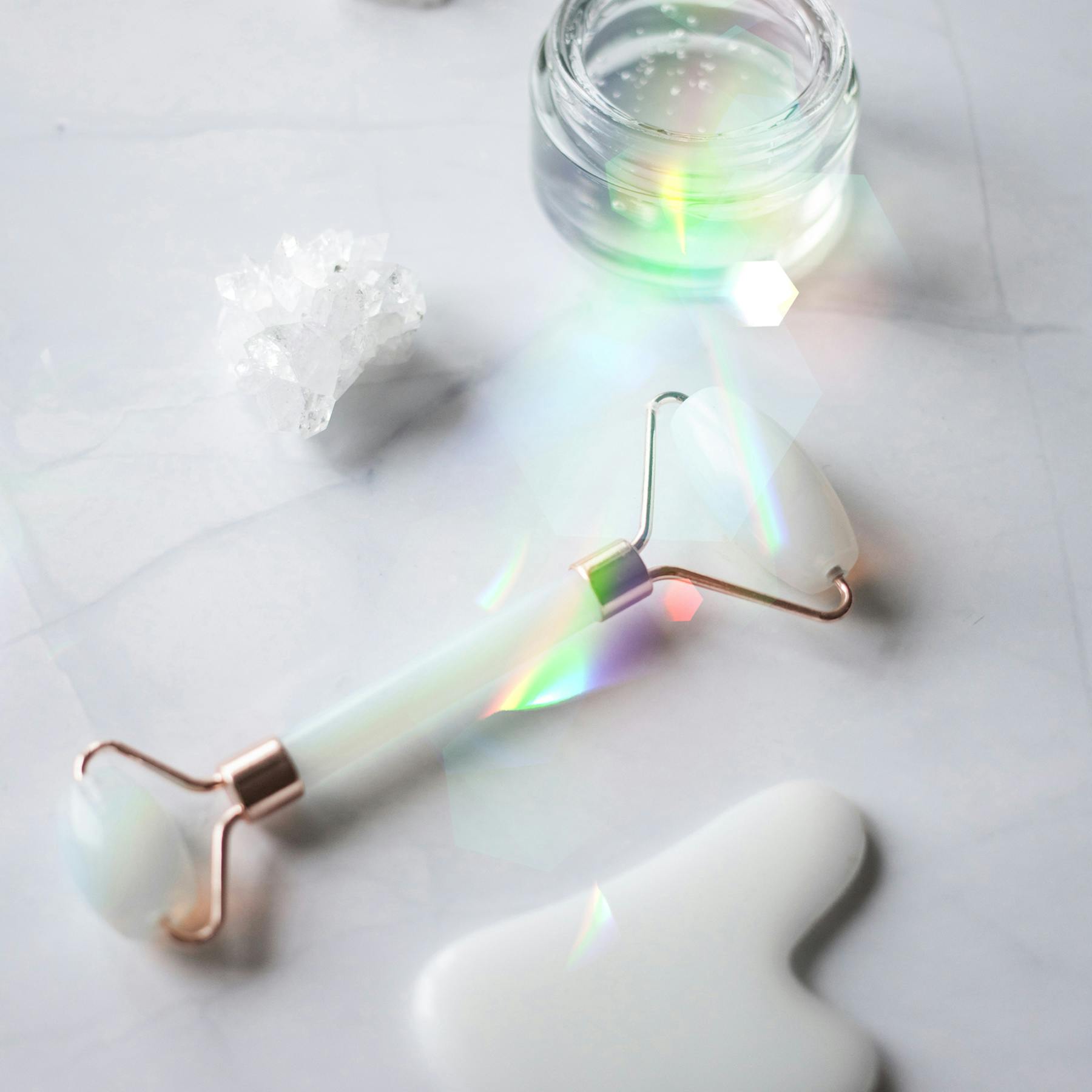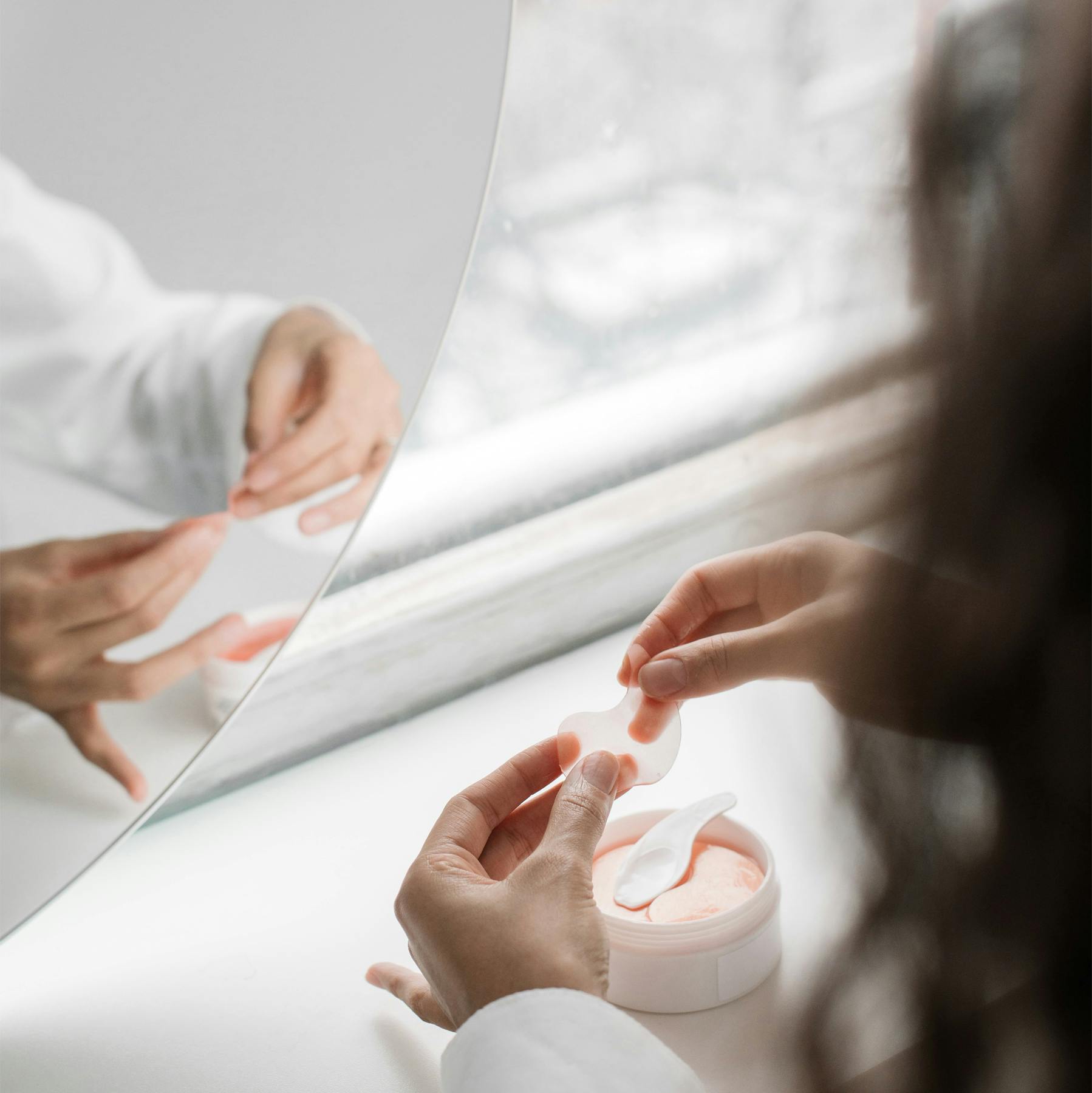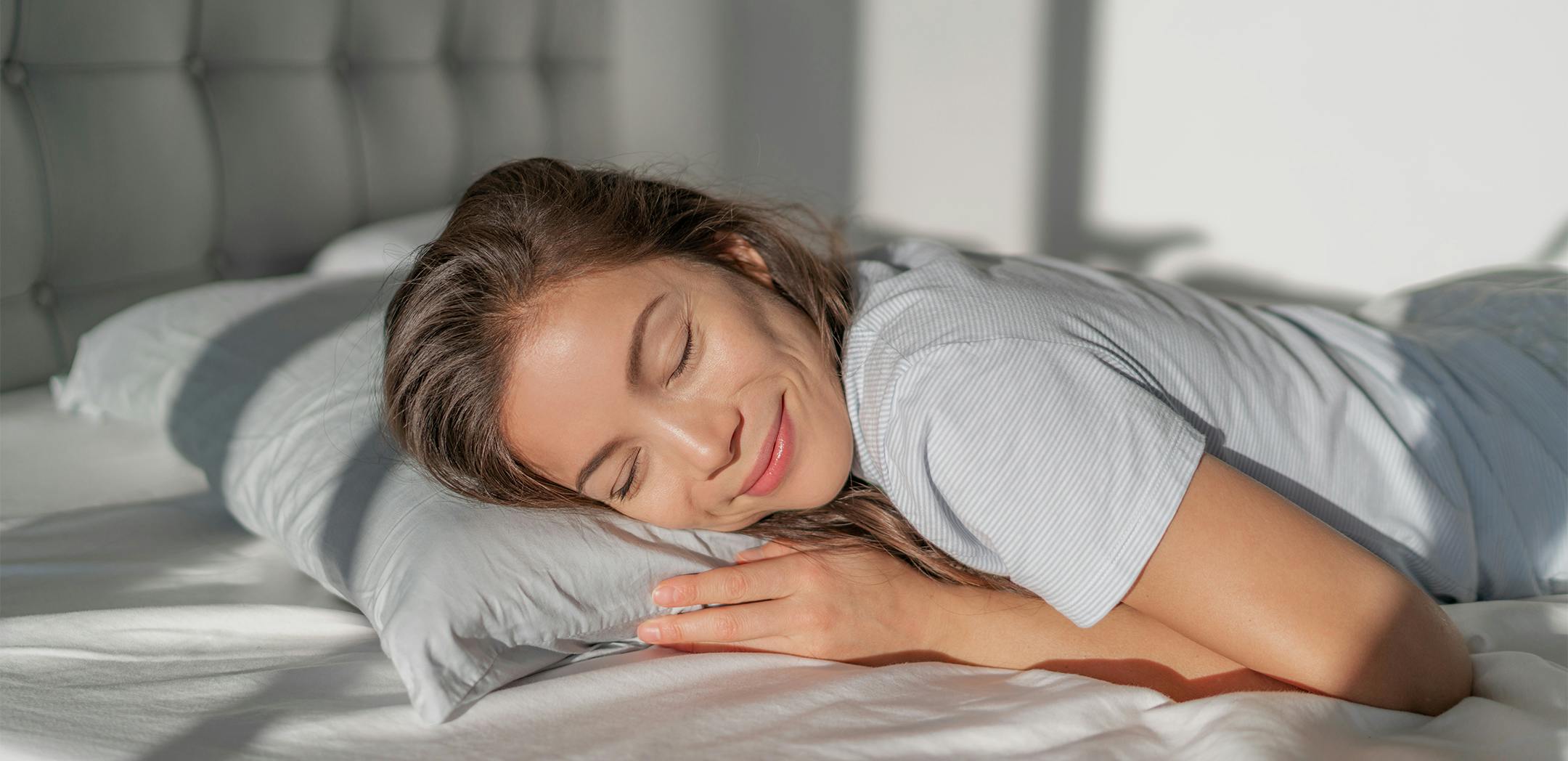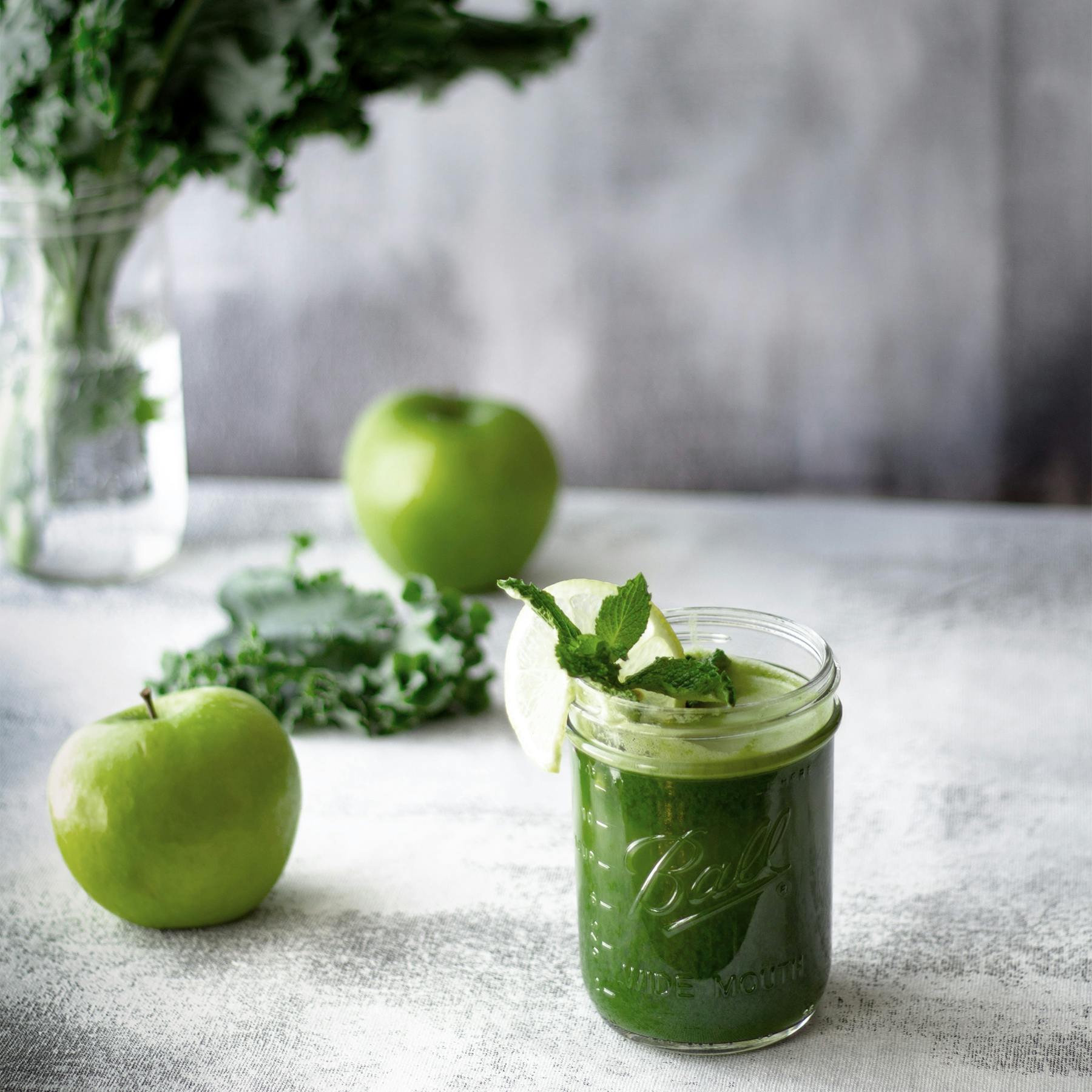The early signs of ageing
Have you ever stood in front of a mirror raising your eyebrows and squinting to see just how many wrinkles you may have?
We have all been there. Trust us!
But it's not the end of the world.
What you are most likely experiencing are some of the early signs of ageing. And whilst it may not be ideal, it is totally normal.
Beauty has no expiration date but there are a few things we can do to slow down the ageing process. They say ‘nothing looks better in your fifties than sunscreen in your twenties’, so here is what you NEED to know!
The first signs of ageing
You may start to notice the first signs of ageing in your early 20s. We know it’s probably not ideal as you may be focused on other things in your life right now, but recognising the early signs of ageing may just help you to age gracefully (and a lot slower!).
Here are some of the first signs you may notice:
Fine lines
Fine lines, otherwise known as ‘wrinkles’, are fairly easy to find if you look hard enough. You most likely will start to notice fine lines when you have done your makeup. After a few hours, when it starts to settle into your skin, you may notice that some fine lines appear that weren't there before.
Dull Skin
You haven’t lost your sparkle, but as you start to age, your cell-turnover rate starts to slow down and your skin may begin to lose a bit of it’s glow.
Sun Spots
A nice sun tan may have been fun at the time, but in your 20s, sun exposure may start to catch up with you, usually in the form of sun damage. Cells that have been UV-damaged may start to reach the skin’s surface, think freckles or hyperpigmentation, causing the skin to look uneven. Some damage may even require professional diagnosis.
Crows-feet
A super common place to first notice ageing is around your crows-feet which are the little fine lines around the eye area. Squinting and smiling can contribute to crows-feet and whilst they may not be avoidable, there are a few ways to minimise the damage such as wearing sunglasses to prevent squinting.
Drooping
When we are young we have nice plump skin thanks to an ample supply of collagen and elastin which give our face structure. Once the production of these starts to slow, our skin can begin to lose that structure around the jaw and cheeks.
Puffy eyes
Dark circles and puffiness around the eyes can become increasingly apparent as you start to age. The skin around the eye area is already quite thin but as we start to get older, the skin starts to get even thinner.
Dry Skin
Dry skin can be a sign of ageing but also a skin concern itself. Find out more about why your skin is dry to determine if it is an early sign of ageing or not.
Common causes of wrinkles
All skin ages at different stages of life from a newborn through to a toddler, a child through to a teenager and an adult to an elderly person. If you took a photo of your face every day throughout your entire life, you would slowly start to notice the changes through the years.
As we age, skin loses elasticity due to collagen production slowing down over time. However, there are many factors that can contribute to speeding up this process such as lifestyle habits and sun exposure.
The older we get, the thinner and dryer our skin may become. It will also start to lack the volume and glow it once had.
So what causes ageing is age. But how do we slow it down?
Best ways to slow ageing
You can’t stop the ageing process but here are a few of the best ways to help slow it down:
Avoid the sun
This may disappoint a lot of people, but the best way to slow down the ageing process is to avoid the sun. Now we don’t mean that you have to stay out of the sun completely, but we do mean that you should limit your time in direct sunlight. So invest in a cool beach umbrella and remember to cover up in the sun. Your skin will thank you later. You can find out more about preventing sun damage throughout the warmer months.
Beauty Sleep
They don’t call it beauty sleep for nothing. Science suggests that catching those extra zzz’s may help with skin elasticity, meaning you are less likely to get more wrinkles (you don't have to tell us twice!). And rumour has it, that sleeping on your back just might be the key to reducing wrinkle formation. Whether it's true or not, that's where you'll find us.
Lifestyle Detox
We aren’t here to give you a lecture, however, we would like to subtly remind you of the effects that smoking, drugs and alcohol can have on your skin. Each has its own implications but all of them can contribute to ageing. So if you're wanting to ensure your skin stays wrinkle-free it may be wise to consider which lifestyle choices you choose to avoid.
Enrich your diet
Did you know that certain foods can have an effect on how fast or slow you age?
Salmon: As well as being a great source of protein, it also provides you with the benefits of an essential fatty acid known as omega-3, which can nourish and plump skin, keeping skin youthful and preventing wrinkles.
Fruit and vegetables: Take advantage of the antioxidant compounds found in your fruit and vegetables which can fight damage caused by free radicals, leaving you with glowing skin.
Cut coffee: Some studies show that coffee can accelerate the ageing of your skin whilst some types of cocoa can help prevent it, so see if you can swap a latte for a high-quality hot chocolate every now and then.
Stay Hydrated
Keeping your body hydrated from the inside out can help keep your skin healthy and hydrated. It can help to flush out toxins, regulate your body temperature and aid digestion so is essential for many healthy functions of the body. The extra hydration can positively affect the hydration of the skin, so set yourself a daily target and always keep your water bottle handy.
Relax your face
Now we realise this may sound a little odd, but your face may appreciate some much-needed zen. Give that cranky face rest and try some de-stressing techniques to prevent repeated facial movements which may contribute to early signs of ageing. Take a yoga class or try some meditation to keep your skin feeling stress-free.
Can you reverse ageing skin?
It is impossible to completely reverse ageing skin but taking the right steps to slow the process can definitely help.
Early intervention is the key so even if you're in your 20s, it may be time to start treating your skin for early signs of ageing.
Take care of your ageing skin
Taking care of your ageing skin doesn't have to be complicated.
Sure, there may be certain ingredients which are crucial to preventing fine lines, but our simple skin quiz can take the guesswork out of finding the right products.
Your skincare routine will change throughout your life and as product technology evolves, there will be more and more products available for your skin type.
Using our Skinalyser™ and its sophisticated AI technology will ensure you have access to the best products for ageing skin and treating any other skin concerns you may have.
Embrace the change
Like the Acne Positivity Movement, we do believe that it is important to embrace change and accept your skin in whatever form it may be.
It is essential to love the skin you're in, fine lines and all. So don’t stress about the little personality traits that start popping up over the years.
In fact, that extra stress about ageing may actually lead to ageing itself. So keep calm and follow the above tips to prevent the early signs before they occur.
Common ageing myths
There are many myths and old wives' tales about ageing skin so we thought we might ease your mind about a few of them:
I’ll age the same way as my parents did
Some things are inherited, like your personality or your hair type, but wrinkles are most likely not. Whether your parents aged gracefully or not, it generally won’t be a sign of the way you will. There are more impactful factors than genetics which may contribute such as sun damage or smoking, so you still have the ability to slow down the process earlier than they may have.
Wrinkle treatments are expensive
Everyone gets wrinkles, so there are hundreds of products and solutions out there that claim to treat or cure them which may come with a hefty price tag. But they don’t have to break your budget. Early intervention is the key, and using the right products from the start could save you money in the long run.
All skin can be treated the same way
Everyone’s skin is different. In fact, you could be a twin and have completely different skin to your other twin. Which is why the skin quiz will diagnose your exact concerns to ensure that your routine is specific to your needs. There may be certain products or ingredients that may be commonly used, but the actual routine itself should be customised to suit the individual.
Moisturiser prevents wrinkles
Applying moisturiser correctly will definitely help keep the skin hydrated and plump however it won’t necessarily prevent wrinkles from forming. It will however make them less noticeable so using a good moisturiser in combination with early prevention, will help fight the signs of ageing.
Sunscreen is only for sunny days
Sunscreen is not only to protect your skin from sun damage, but it also will help to prevent your chances of skin cancer. When it's sunny, you remember to reapply because you feel your skin burning; however when it's cloudy, often sun protection goes overlooked. Make sure you are protecting your skin from UVA and UVB rays all year round by using SPF-rated products as a part of your daily routine.
A routine for ageing skin
It’s no secret that we love a good skin care routine, so when it comes to ageing skin, it's essential to have the right products to keep your skin healthy and happy from your 20s and up.
Head to the skin quiz to be matched with the perfect products for your skin type.



